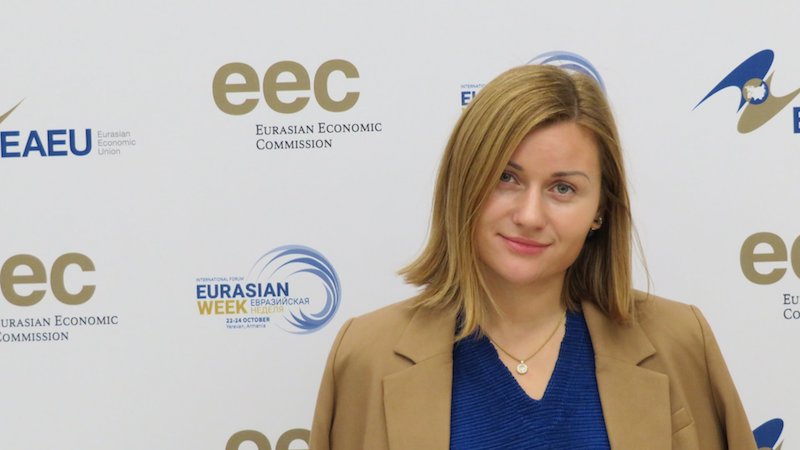The international business magazine, which aims to promote the development of business partnership and promote the image of Russia abroad, published an interview with IC ICTAS INSAAT Development Director, Ph. D. Elena Stepanova – about participation in the forum "Eurasian week" and the main risks of sovereignty in the market.
http://www.rbgmedia.ru/post.php?id=4914
Elena Stepanova: "For us, participation in the "Eurasian week" is an opportunity to learn about the directions and strategies of development of the EAEU countries".

Economists are increasingly expressing the view that the era of globalization is coming to an end, and the world is beginning to split into different groups that will develop separately. As a representative of an international company, do you see any risks in sovereignisation?
- I think we should not oppose the concept of "sovereignization" and "globalization". Indeed, the form in which we used to understand "globalization" in the 20th century and the dogmas of the Washington Consensus (liberalization of financial markets, free exchange rate of the national currency, liberalization of foreign trade, reduction of restrictions on foreign direct investment, privatization, deregulation of the economy, etc.) not only did not lead to the desired results, but caused serious damage to the economies of a number of countries. A natural reaction was the protection of national interests.
However, in the pursuit of "liberalization" of markets, we often miss the point. Globalization alone cannot be a driver of economic growth. It is important to have a clear strategy for economic development, taking into account national interests, as well as social, territorial, resource and other constraints. From the point of view of the representative of the infrastructure construction company, the presence of such a strategy makes it easier to understand the infrastructure needs of the region in recent 10-15 years.
But today, regional and global communities are almost on different sides of the barricades. Is it possible to build a dialogue between them?
- I can't agree that global and regional communities are on different sides of the barricades. Indeed, we see structural shifts in spheres of influence: from top to bottom - strengthening the role of cities and local authorities, horizontally – from administrations to public and civil associations network, and globally - in the circles of communities of capital, trade and innovation. These communities operate under different laws and live in different rhythms, but they have a common goal – to meet the needs of the population and improve the quality of life.
Regional communities are well aware of the needs of the region, while global communities have access to capital, innovations, technologies and knowledge. Therefore, it is important not just to build a dialogue, but to involve representatives of global communities in joint work on a regular basis to solve regional problems. Fortunately, modern technologies allow to provide such work.
Despite the fact that we are a global company, we are still working in regional markets, which means that we need to understand what the region needs, what is the strategy and vision of the development of the region's leadership and the needs of the population. Therefore, participation in global and regional communities is equally important for our activities.
There have been serious political changes in Armenia recently. Will the political changes affect the activities of your company in the country?
- Our business (infrastructure development) has a certain specificity, and it is connected with the fact that the investment transactions that we structure are implemented for 20-30 years. During this period, many things can change, but the basic needs of people in a particular infrastructure object do not change. Let me explain: we are now in Yerevan, a city founded in 782 BC.. Then there was the first fortress Erebuni. How old is the Republic of Armenia? - On August 23, 1990, the Supreme Soviet of the Armenian SSR adopted the Declaration of independence of Armenia. Did the independence of the Republic somehow affect the use of the Ahtanak bridge, for example, by citizens?
If people living near the river need a bridge to the other side, the need will not be lost only because of the appointment of a new leader and even the acquisition of state sovereignty. However, it can really affect the progress of the project and even question its completion.